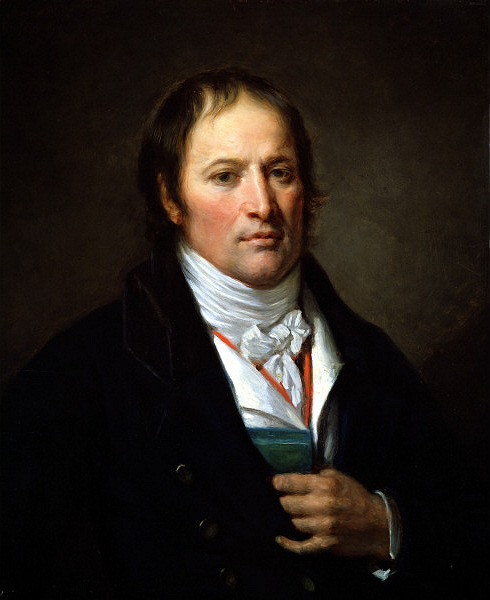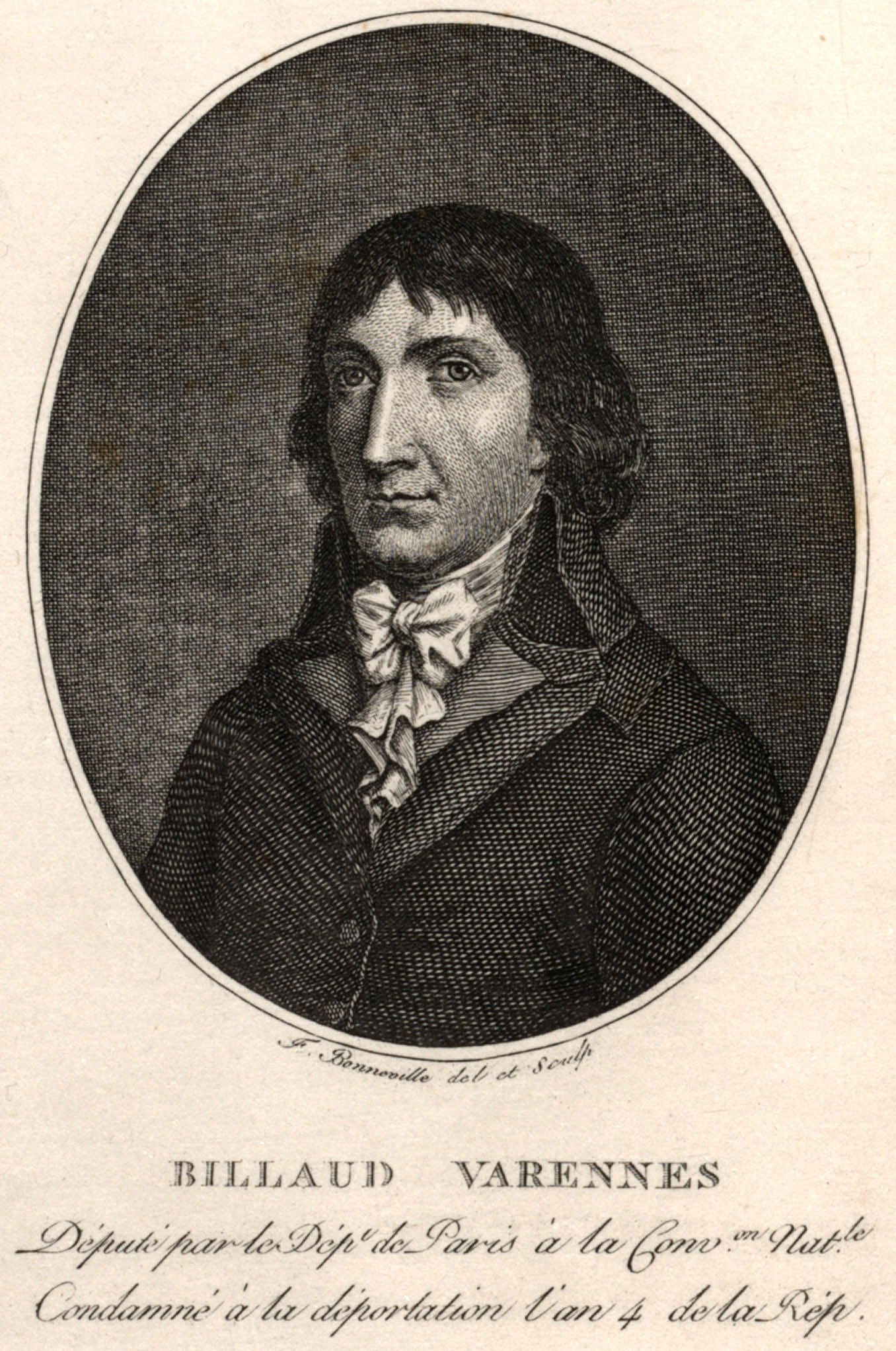Billaud-Varenne, 1756-1819
Enlarge text Shrink text- Conte, A. Billaud-Varenne, c1989:p. 11, etc. (Jacques-Nicolas Billaud; b. 4/23/1756 at La Rochelle; called self Billaud de Varenne; later, Billaud-Varenne; d. 6/13/1819 in Haiti)
- His Mémoire inédit de Billaud-Varenne sur les événements du 9 thermidor, 1910.
- His Curiosités révolutionnaires, 1893:t.p. (Billaud Varenne)
- His Réponse de J.N. Billaud, représentant du peuple, à Laurent Lecointre ... 1795.
- Grand dict. enc. Larousse, 1982-1985:v. 2, p. 1248 (Billaud-Varenne (Jean Nicolas) 1756-1819)
- Grand Robert des noms propres, 1984:v. 1, p. 377 (Billaud-Varenne (Jean Nicolas))
- NUC pre-56(hdg.: Billaud-Varenne, Jacques Nicolas, 1756-1819)
- France. Convention nationale. Commission des vingt-un. Rapport au nom de la Commission des vingt-un ... 1795:t.p. (Billaud-Varennes; member of the former Comité de salut public)
Jacques-Nicolas Billaud-Varenne (French pronunciation: [ʒak nikɔla bijo vaʁɛn]; 23 April 1756 – 3 June 1819), also known as Jean Nicolas or by his nicknames, the Righteous Patriot or the Tiger, was a French lawyer and a major figure in the French Revolution. A close associate of Georges Danton and Maximilien Robespierre, he was one of the most militant members of the Committee of Public Safety, and is often considered a key architect of the Reign of Terror. Billaud-Varenne subsequently broke with Robespierre, partly due to their ideological conflicts relating to the centralization of power. Ultimately he played a major role in Robespierre's downfall on 9 Thermidor, an act for which he later expressed remorse. After Thermidor, Billaud-Varenne was part of the Crêtois, the last group of deputies from The Mountain. He presided over the persecution of Louis-Marie Turreau and Jean-Baptiste Carrier for their massacres during the War in the Vendée, which ended by their execution. Billaud-Varenne was later arrested during the Thermidorian Reaction. Deported to Cayenne without trial, he married a black ex-slave named Brigitte, refused Napoleon's pardon there and finally died in Port-au-Prince in 1819. Billaud-Varenne was one of the central figures of the first part of the French Revolution, but he remains little studied or little understood.
Read more on Wikipedia >
 Personality
Personality






